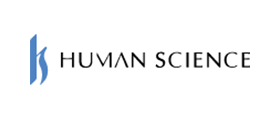2022.11.15
How to prevent compliance violations on social media?
As compliance becomes increasingly important for companies, a significant challenge is the troubles related to social media. In today's world, where owning a smartphone is the norm, casual posts by employees and their associates can lead to controversies, resulting in damage to the company's image and impact on management, among various other losses. Therefore, this time we will reaffirm the importance of compliance for companies and provide a detailed explanation of the risks posed by social media and the measures to mitigate those risks.

1. Why Compliance is Important
First, let's confirm the definition of compliance. Compliance is translated as "legal compliance," but in a corporate context, compliance not only refers to adherence to laws such as antitrust laws and unfair competition prevention laws, but also includes following the "work regulations" established by the company itself and adhering to the "common sense and rules in society" from ethical and moral perspectives, which means conducting sound corporate activities.

●Reasons why corporate compliance is being emphasized
Recently, corporate compliance has become increasingly important in various situations, one of the reasons being the series of scandals involving companies in the past. From the 1990s to the 2000s, numerous scandals were revealed, including the concealment of recalls by automobile manufacturers, food fraud issues at major food companies, and accounting fraud by multiple companies. Corporate scandals ultimately cause real harm to consumers, leading to a loss of brand power for companies and potentially threatening their survival. Furthermore, companies that violate compliance may face the risk of losing talented employees and becoming unable to hire new ones.
On the other hand, companies that strictly adhere to compliance can expect an increase in corporate value, gaining trust from customers and business partners, securing excellent employees, and improving performance. In today's rapidly accelerating corporate competition, it is clear that not only the quality of products and services but also the establishment and adherence to compliance are crucial factors that influence the future of a company and are being emphasized.
●Examples of Compliance Violations
There are various cases of compliance violations in companies. Below is a summary of what specific actions these may involve.
Examples of Corporate Compliance Violations
・Unauthorized transfer of business data such as sales information and personal data
・Leakage of personal information
・Leakage of internal information, insider trading
・Inappropriate statements or posts on social media
・Harassment such as power harassment and sexual harassment
・Inappropriate overtime work (resulting in mental illness or death from overwork for employees)
・Financial statement fraud, tax evasion, information tampering
・Violations of business laws and violations of the Act against Unjustifiable Premiums and Misleading Representations
・Unpaid or underpaid wages
・Hygiene management errors, misrepresentation of origin or performance
・Employment discrimination
・Misuse of company property and equipment
・Copyright infringement
To prevent such compliance violations and ensure thorough compliance, many companies are developing and establishing internal control systems. However, while it is possible to check for fraud within the company, it is almost impossible to monitor the personal social media of employees and their associates. Therefore, compliance measures related to social media can be considered a significant challenge for companies.
2. The Dangers of SNS and the Mechanism of Outrage
SNS stands for "Social Networking Service," which refers to services that allow social interaction on the internet. With the widespread use of smartphones, the number of SNS users has exploded, enabling anyone to easily share information. However, behind this convenience, SNS also harbors many dangers.

‹The Dangers of SNS›
・Unexpected slip-ups and uncertain information can be disseminated
・Disseminated information can spread rapidly
・Disseminated information remains on the internet
・There is a risk of privacy being identified
・There is a possibility of confidential information leakage or account takeover
What would happen if employees made statements through social media that reflect a low awareness of the dangers of such platforms and a lack of consideration for social norms and common sense? That company could face a situation where a fatal problem is revealed due to social media, leading to criticism and defamation from many people. In short, there is a possibility of "risk of going viral for the wrong reasons" through social media. The types of posts that are prone to going viral include the following.
Content prone to backlash on social media
・Unexpected remarks stemming from prejudice or assumptions
・Unreasonable actions that go against social norms
・Exposures by employees or company affiliates (whistleblowing)
・Leakage of personal information of oneself or others
・Discriminatory expressions
・Touching on sensitive topics such as politics, religion, and gender
In addition, cases where employees mistakenly post on the corporate account instead of their personal account (commonly referred to as "misfires"), impersonation by third parties, and complaints from customers can also lead to controversies. So, what kind of developments occur from the initial post that lead to a controversy? Let's take a look at the series of events.

Due to the nature of SNS, the speed at which controversies escalate is very fast, and the first backlash can occur within a few days to about a week after a post. Additionally, there are many cases where companies are slow to notice the controversy during this period, leading to situations where fact-finding investigations cannot keep up with the trouble. Such delays in initial response or incorrect handling can provoke users' reactions further, potentially fueling even more "firestorm fuel".
>>Compliance Measures Undertaken by Companies <Case Studies Part 2>
3. Examples of Compliance Violations Related to SNS
Now, let's take a look at actual past cases of corporate scandals related to social media. The cases are organized by the causes of the scandals.

●Cases that caused a scandal due to information leaks
(CASE.1) Posting Personal Information of Visitors
A family member of an employee at a financial institution posted on social media that they were told the address of a celebrity who visited the financial institution, leading to a backlash. The name of the financial institution was also identified, and the institution was forced to respond by publishing an apology on its official website and social media. Additionally, this backlash caused a sharp drop in stock prices, resulting in a loss of several billion yen in market capitalization.
(CASE.2) Posting Confidential Information
An employee working at a car manufacturer's factory discovered an unreleased car within the factory and posted images of it on social media. As a result, it caused a backlash. Due to the leak of confidential information by the employee, the car manufacturer faced various criticisms, including points about their management system, and their brand image suffered.
●Cases that caused controversy due to thoughtless posts
(CASE.1) Thoughtless Tweet on the Day of the Atomic Bomb Drop
The official Twitter account of a certain theme park posted "Happy Nothing Day." This was a Japanese translation of a line from a song featured in the movie 'Alice in Wonderland,' but the post was made on August 9, the day the atomic bomb was dropped on Nagasaki, leading to a flood of criticism. The theme park subsequently deleted the tweet and issued an apology for making an inappropriate statement without considering the timing.
(CASE.2) Criticism of Posts Using the Term "Corporate Slave"
The official Twitter account of a real estate information site faced backlash after posting a tweet that used the term "corporate slave" as a joke. The post included a sharp comment: "According to corporate slaves, they refer to overtime as 'the after-party'♪ Saying that makes it sound really fun, doesn't it? (excerpt)" This led to a wave of criticism from many users, resulting in a controversy.
●Cases that caused a backlash due to inappropriate posts
(CASE.1) Inappropriate Video Spread by Employees
An employee of a nationwide restaurant chain intentionally filmed inappropriate acts, such as throwing food into a trash can and then cooking it again, and posted the video on social media. The video quickly spread and caused a backlash. As a result, the operating company suffered losses amounting to billions of yen in market capitalization.
(CASE.2) User Feedback Leading to a Controversy
In a social media promotion plan for supplements provided by a beauty-related company, there were voices raised indicating that the expressions used were in violation of the Pharmaceutical Affairs Law. Additionally, multiple posts were discovered that could also be judged as violations of the Pharmaceutical Affairs Law and the Act Against Unjustifiable Premiums and Misleading Representations, leading to a controversy. Subsequently, the beauty-related company issued an apology and expressed proposals for future measures.
(CASE.3) Criticism Focused on Inappropriate Post Content
A major discount store posted on its official SNS with the phrase "#What have you stolen at ●● (store name)?" along with a hashtag, which sparked controversy. Although other hashtags such as "#This is a comedy show" and "#Shoplifting is a crime" were added, leading to the assumption that the post was intended to solicit comedic responses, it ultimately drew criticism for being inappropriate.
●Cases that have caused controversy due to internal whistleblowing or external complaints
(CASE.1) Internal Whistleblowing by an Employee's Family
The family of an employee working at a certain company heard the employee's complaints about the company and posted the content on social media. Many users who saw the content empathized with it, leading to a flood of criticism directed at the company, which was forced to respond. As a result, the company's image was damaged, resulting in losses amounting to several billion yen in market capitalization.
(CASE.2) Incident of Foreign Object Contamination Leading to Business Suspension
The issue was revealed by a tweet from a consumer who purchased cup yakisoba contaminated with a foreign object (insect). Due to initial response missteps by the representative of the food manufacturer that produced the product, the situation escalated into a scandal. After announcing the suspension of production and sales of all products, the food manufacturer was forced to cease operations.
(CASE.3) Pointing out an improper campaign plan
In a campaign plan utilizing social media conducted by a confectionery manufacturer, a user's claim that only accounts with a large number of followers won spread, causing an uproar. After conducting an investigation and issuing an apology, it was announced that a re-draw would be held for applicants, including those from past campaigns.
●Cases that caused a backlash due to impersonation or "misfire"
(CASE.1)
A travel agency's official Twitter account sent a comment calling a certain artist "ugly," which led to a backlash. As sympathy for the artist grew, criticism of the company intensified, resulting in a scandal. The travel agency has announced that the cause is unknown, but it is believed that there may be a possibility of impersonation or that the person in charge may have made an "accidental post."
4. To prevent social media backlash and maintain compliance
As can be seen from the examples introduced, statements or actions of an individual employee that are made "just casually" can often spread through social media, leading to irreparable situations. It is important for companies to view personal issues as corporate issues, and thorough compliance, including how individuals use social media, is required.
Now, I will specifically explain what measures should be taken to prevent backlash on social media.

‹Measures to Prevent Social Media Backlash›
●Developing SNS Guidelines and Policies
By formulating SNS guidelines and policies within the company, and clearly stating prohibitions and points to be aware of, it is expected to enhance employees' awareness regarding the use of SNS. Guidelines related to SNS are referred to as "Social Media Policies," and an increasing number of companies are making their contents public.
●Monitoring SNS Posts
Establishing a system to monitor SNS posts and quickly checking inappropriate posts related to the company is also an effective way to prevent backlash. If monitoring tasks are complicated, using external monitoring services is also an option.
●Regularly conduct SNS risk training
It is important to educate all employees about the "corporate perspective of SNS risks," including the dangers lurking in social media and the losses that companies may incur in the event of a backlash, rather than focusing solely on personal use.
In addition, basic actions such as not posting information that could identify individuals, setting the scope of publication, and asking yourself once again before pressing the post button whether the information is suitable for global dissemination can help avoid backlash.
However, even if we can prevent some degree of escalation, we cannot eliminate the risk entirely. In the event that an escalation does occur, mistakes in the initial response are expected to create further issues, so it is important to decide on a response method in advance and act calmly. Examples of response methods that are considered good include the following:
・Fact verification
・Establishing a policy (ensuring consistency in the response)
・Sincerely apologizing if the company is at fault
To prevent social media backlash and ensure compliance, it can be said that "regular internal training" is essential. In particular, since social media is often used individually, each employee needs to strengthen their awareness of social media risks and fully understand the compliance standards set by the company.
What we would like to propose is learning through e-learning materials. By utilizing mobile devices, you can study at your own pace without being constrained by time or place, making effective use of your time. Additionally, in IT fields such as social media where information is updated rapidly, it is important to always keep up with the latest information. In this regard, e-learning is easier to update compared to paper materials, allowing you to obtain fresh and up-to-date information.
>>Compliance Measures Undertaken by Companies <Case Study 2>
The e-learning material on human science, "Compliance Measures in the Workplace: Basic Knowledge Edition," covers the fundamental knowledge of compliance in general. It supports understanding the importance of compliance through learning, enabling individuals to take conscious actions in their daily lives. Furthermore, by studying alongside the "Compliance Measures in the Workplace: Practical Edition," where practical knowledge can be learned in more specific scenarios, a deeper understanding can be expected.
Our materials are regularly reviewed and updated, and new courses are added. By the end of the year, a new course including social media measures will be added, allowing for broader learning opportunities. Additionally, at the request of our clients, it is also possible to customize the content to better match the specific circumstances of each company.
In today's rapidly advancing information age, it is expected that laws and morals related to compliance, including measures for social media, will continue to be updated in line with this trend. To raise employee awareness and avoid unexpected troubles, it is recommended to conduct regular in-house training through e-learning to acquire the latest knowledge.
>>Related: Basic Information Security Course – Information Security for PCs and Smartphones
Author:
Shizuko Sase
Education Solutions Department Production Group Writer
After joining Human Science, worked as a technical writer,
gaining experience in the design and writing of product manuals and operational manuals.
Subsequently engaged in writing and production direction of e-learning materials.
Involved in the production of approximately 200 educational materials to date.
Contact Information:
Phone Number: 03-5321-3111
hsweb_inquiry@science.co.jp












